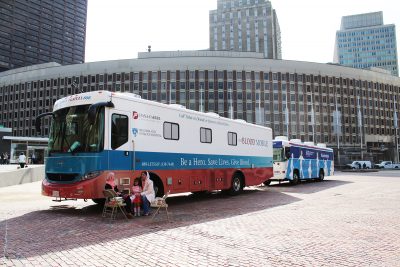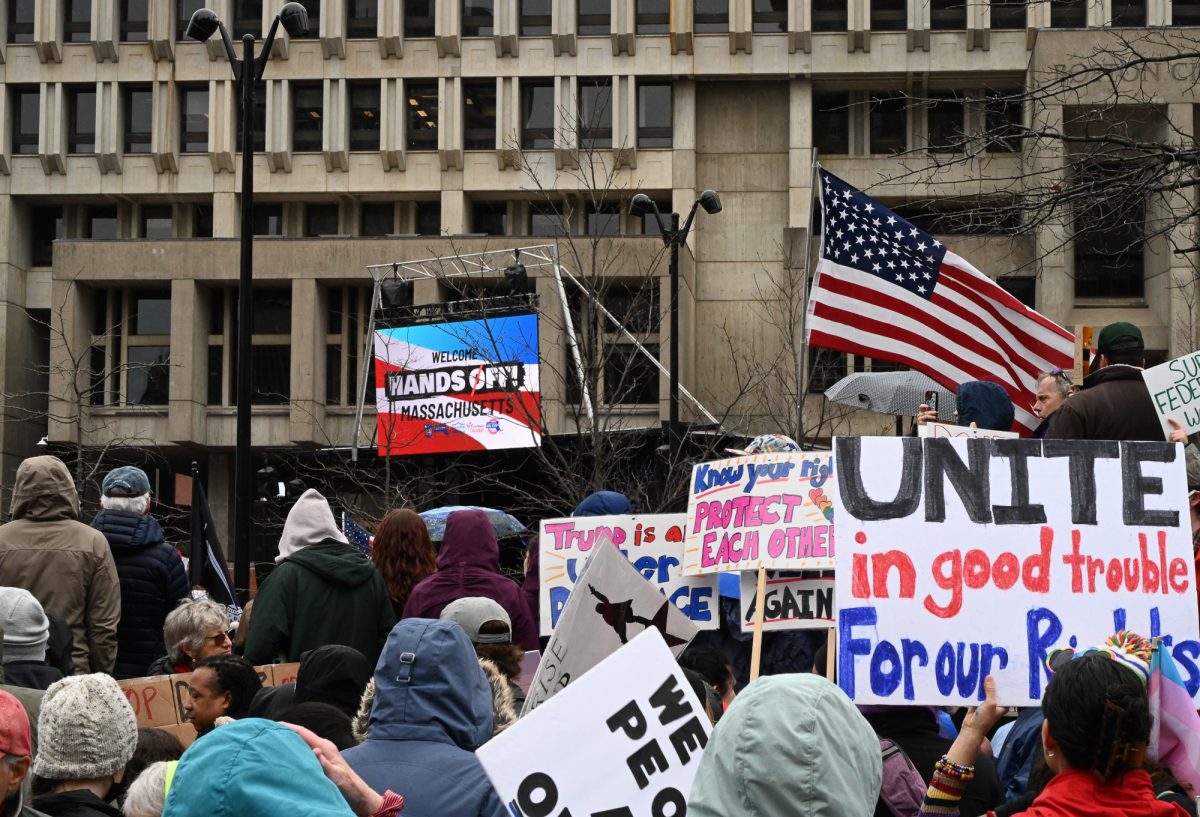
Nonprofits such as the American Red Cross and Muslims for Life held blood drives in Boston and across the state in honor of the 2013 Boston Marathon bombing victims and survivors, according to press releases issued by the organizations.
Aly Barraza, the communications manager for the Massachusetts chapter of the Red Cross, said that the Red Cross held blood drives in Boston and Watertown on One Boston Day to commemorate the fourth anniversary of the Boston Marathon bombings.
Barraza said the blood drive was a way to recognize and honor those affected by the attack while giving back to the community.
“This is a perfect way on One Boston Day where the community might be looking to give back and find a way to … honor the survivors of the marathon bombing,” Barraza said. “This is just one way where you can give back … and help save the lives of hospital patients in the future.”
Barraza said the Red Cross plans to continue to demonstrate its involvement in the community after its emergency response to the Boston Marathon bombings four years ago.
“We were very much involved … during the initial aftermath of the attacks and making sure that all hospital patients in need had access to the blood they needed at the right time following the unfortunate events at the finish line,” Barraza said.
There is a great need for blood and blood products across the United States for current hospital patients alone, Barraza said.
“Every two seconds someone needs blood in the U.S.,” Barraza said. “Right now, the Red Cross needs to collect about 14,000 pints of blood across the U.S. just to meet hospital patient need.”
Muslims for Life, a nonprofit founded by the Ahmadiyya Muslim Community, also held a blood drive in the city to commemorate the 2013 Boston Marathon bombing, said Kashif Chaudhry, the faith outreach director of the Ahmadiyya Muslim Community.
Chaudhry said the blood drive had a positive response and welcomed a variety of people from different backgrounds and faiths.
The Ahmadiyya Muslim Community started Muslims for Life on the 10th anniversary of the terrorist attacks on the World Trade Center as a way to send a message to the public and to the perpetrators of the attacks, Chaudhry said.
“We want to make it clear that we don’t endorse … [and] we don’t support [acts of terrorism],” Chaudhry said. “Actually, we condemn all kinds of violence in the name of faith and what we do instead is give blood back to people.”
Chaudhry said Muslims for Life was formed to demonstrate that the majority of Muslims are unlike the terrorists who attacked on 9/11 in the name of their faith.
“That is the message that Muslims for Life came up with and that is the message that we wanted to give America,” Chaudhry said. “We are Muslim-Americans and we are not here to hurt anyone, we are not here because we hate anyone.”
Islam stands for the sanctity of life, Chaudhry said, and not for acts of violence and terrorism.
“We love everyone,” Chaudhry said. “We’re here to contribute to society.”
Chaudhry said the Muslims for Life blood drives express the peaceful message of Islam in a powerful way that overshadows the hatred expressed by terrorists.
“[The Marathon bombers] have failed because they tried to take American … blood in the name of [the Islamic] faith,” Chaudhry said. “But what we’re doing in the name of our faith [instead] is giving back blood in a far greater amount to our fellow Americans.”
Several Boston residents said blood drives are vital for hospital patients, and are a valuable way to honor those affected by the Boston Marathon bombings.
Rachel Bingham, 25, of Jamaica Plain, said the Boston Marathon bombings were “a really tragic accident,” and blood donations are necessary to save the lives of hospital patients.
“I actually have had three friends whose lives were saved by blood donations,” Bingham said. “One was a victim of a firework accident and had to [receive] more than 60 units [of blood] over four to five surgeries.”
Joseph McGlauflin, 65, of Back Bay, said the blood drives are a positive way to inspire people to honor the memory of the bombings four years ago.
“[Giving blood is] a way of remembering the tragedy that happened, and you could call that an honor,” McGlauflin said.
James Downing, 31, of South Boston, said giving blood is a crucial way to benefit patients in the community.
“I give blood in platelets over at [Boston Children’s Hospital] where I work, so it’s definitely important [to participate in blood drives],” Downing said.





















































































































